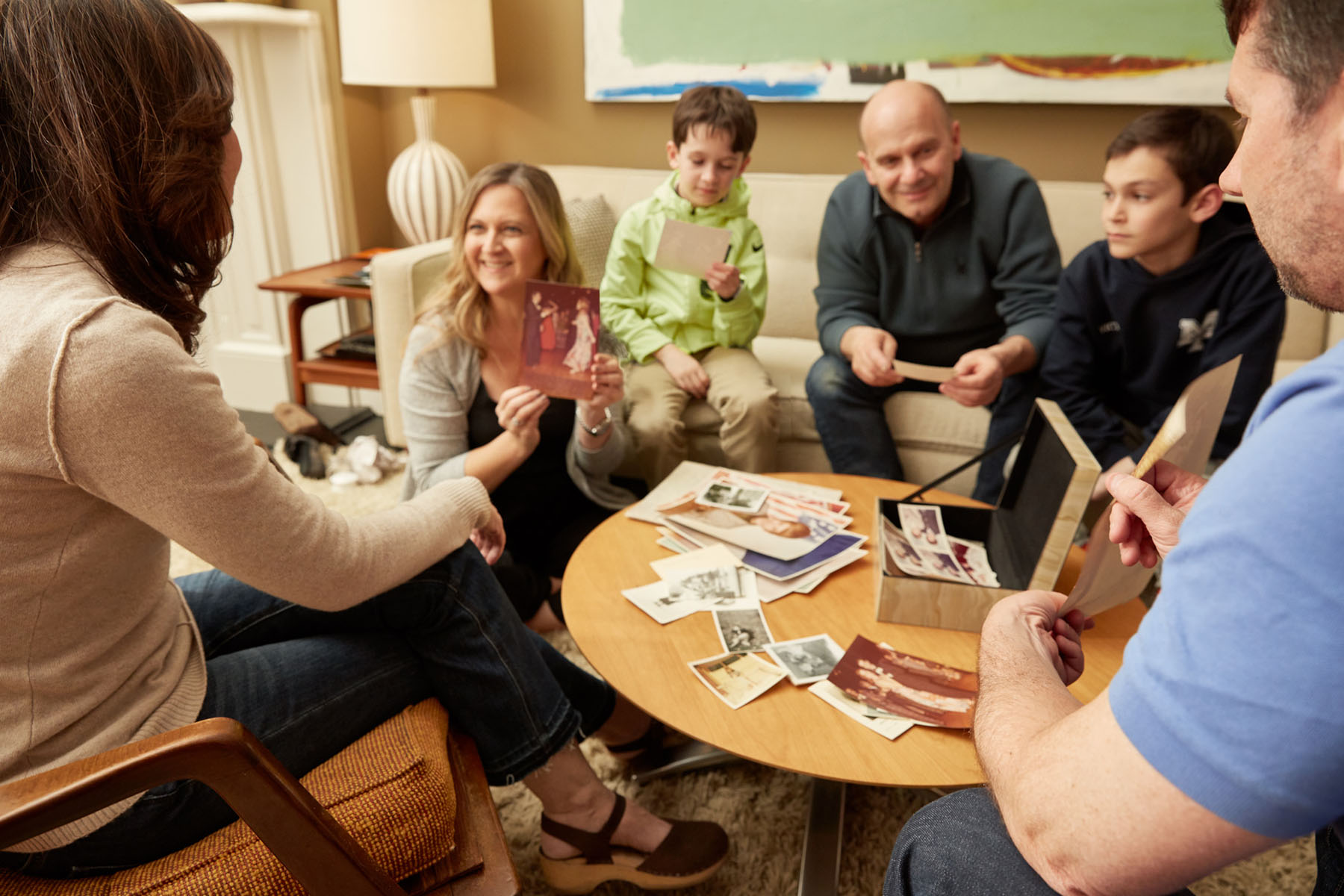Family stories are gifts to our children.
Most kids don’t think of their parents as people—you know, people beyond Mom and Dad. Not until you begin sharing stories with them of who you are, and how you got here. And those stories won’t merely entertain your kids, but also empower them to be undeniably more resilient.
Studies show that kids with a knowledge of family history have higher self-esteem, lower levels of anxiety, and fewer behavioral problems. Children of parents who regularly reminisce about their own childhoods have been shown to be more empathetic to others. And teens who have been exposed to family stories are more confident, with better coping skills.
While an heirloom book preserves your family stories for generations, it’s the telling and retelling around the family dinner table that creates your family lore.
And, unlike story books, a family story is always on hand. “You don’t even need to have the lights on to share with your child a story about your day, about their day, about your childhood or their grandma’s,” writes Elaine Reese in The Atlantic. “Family stories can continue to be part of a parent’s daily interactions with their children into adolescence, long past the age of the bedtime story.”
And when the kids are all grown up? Well, dare I say they will appreciate your stories even more! They may have questions, or add texture with stories from their own experience.
Together you are weaving the fabric of your family’s legacy.











